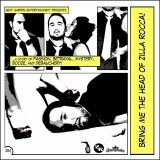The Lives of Others
With the ascension of the Stasi, the German Democratic Republic of the 1980s has become a state of vigilance, paranoia, distance and detention. The country is a population is suspects and everyone can be found guilty of something before long. Artists are assumed to be automatic enemies, who are plotting to push their subversive agendas through subtext. Director Florian Henckel von Donnersmarck, in his debut feature, plunges us back to this Orwellian setting to brutal, stirring effect, roiling up a biting critique of an unconscionable era. The film centers on two men, Stasi agent Gerd Wiesler (Ulrich Mühe) and playwright Georg Dreyman (Sebastian Koch). Wiesler is a loyal party member and teacher of interrogation tactics, while Dreyman is the only East German writer who’s taken seriously enough to be read in the West. They’re positioned to be polar opposites—Wiesler is small, lonely and bald, equipped with an icy stare, while Dreyman is tall, heroic and confident, in a passionate relationship with his plays’ lead actress, Christa-Maria Sieland (Martina Gedeck). Because the state is run by men, and because men are invariably corruptible, Wiesler’s superior’s superior orders him to bug Dreyman’s house and put him under twenty-four-hour surveillance. The Stasi don’t actually suspect him of anything, but the supervisor is in love with Sieland and wants Dreyman removed as an obstacle. That power play is only one of the many ways that von Donnersmarck potently underlines the utter hypocrisy and the arbitrary metrics rampant in the government. The more Wiesler (and that other omnipresent spy, the audience) listens in however, the more sympathetic he becomes. After a lifetime of spouting and enforcing abstract dogma, he starts to see the lure of real lives in action. In observing Dreyman’s and Sieland’s relationship, he sees a closeness and intensity that’s rare in a world of identical grey edifices. Much like a playwright who disguises his intentions, Wiesler starts to take liberties in his transcripts and elide damning moments that would end in Dreyman’s arrest. As we also grow closer to both the artist and the agent, The Lives of Others shows just how multifaceted people can be. In keeping with this theme, the film also displays many unexpected sides, becoming at once a political drama, a romance, a thriller and a comedy as black as a military boot. Its crux though, and its chief accomplishment, is its brilliant treatment of art in a hostile environment. It reminds us just how dangerous art has to power to be, even though it is so much easier to remain silent. As Dreyman’s friend Paul Hauser (Hans-Uwe Bauer) scolds him, “If you don’t take a stand, you’re not human.” And yet the artists who have taken a stand, who’ve been taken away or blacklisted or have committed suicide, demonstrate what happens to the brave. Nonetheless (or as a result), Dreyman, Sieland and Wiesler decide to be brave even in the face of all that evidence. Dreyman smuggles out an incisive exposé of his country into West Germany, Sieland spurns the powerful Stasi supervisor to remain with her true love and an ever-softening Wiesler takes greater and greater risks to ensure their safety. Even though they all enjoy brief moments of vindication and triumph, tragedy does hunt them down eventually. With the careful, exact acts of an Aristotelian drama, The Lives of Others delivers many hard truths about dissent and sacrifice. All of their small, defiant actions may have helped undermine the state, but that doesn’t make the costs they’ve exacted any easier to accept. In this smart, searing film full of excellent performances and great direction, it’s sometimes easier to look away from the screen than to anticipate what’s about to come. It’s also easier to miss the parallels between then and now, there and here, dramatization and reality. But then sometimes, you just have to face up to the injustice and confront the awful epilogue of history, flinch and all. The trailer on YouTube here. * MP3: "Spy On You" - Deerhoof from The Runners Four [Buy it] |
























Comments on "The Lives of Others"
-
 Bryan said ... (3:52 PM) :
Bryan said ... (3:52 PM) :
-
 Wayne Massingham said ... (5:22 PM) :
Wayne Massingham said ... (5:22 PM) :
-
 shane said ... (9:43 AM) :
shane said ... (9:43 AM) :
-
 Charlie said ... (12:57 PM) :
Charlie said ... (12:57 PM) :
post a commentthat was such a great film
Best film I have seen in a long long time!
I love that film too. It's especially weird to watch, because most of it was filmed down the road from my apartment.
I think you might be being a bit over the top on the GDR though...
That's not really my take on the GDR- I was trying to say that's how the movie portrays it.